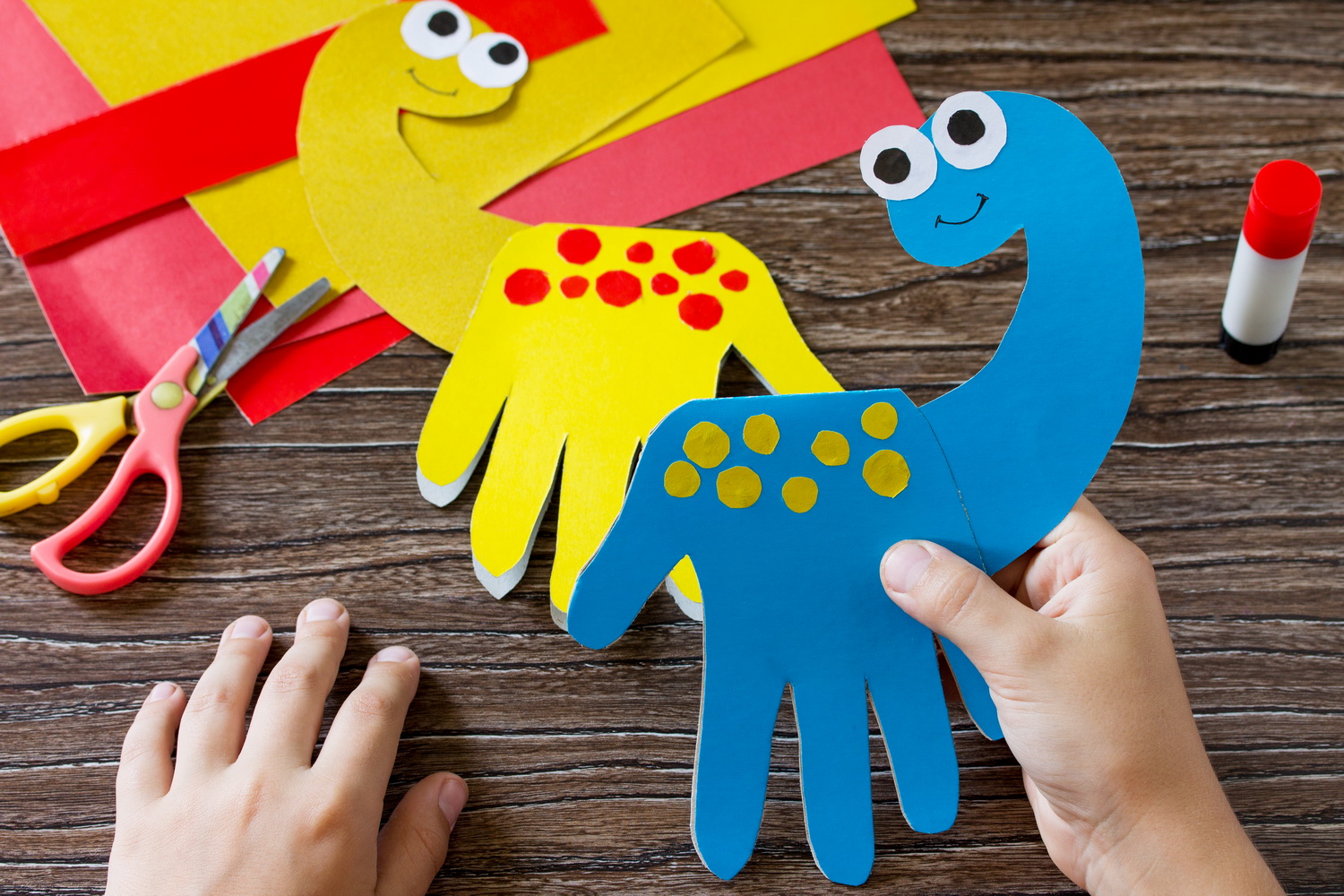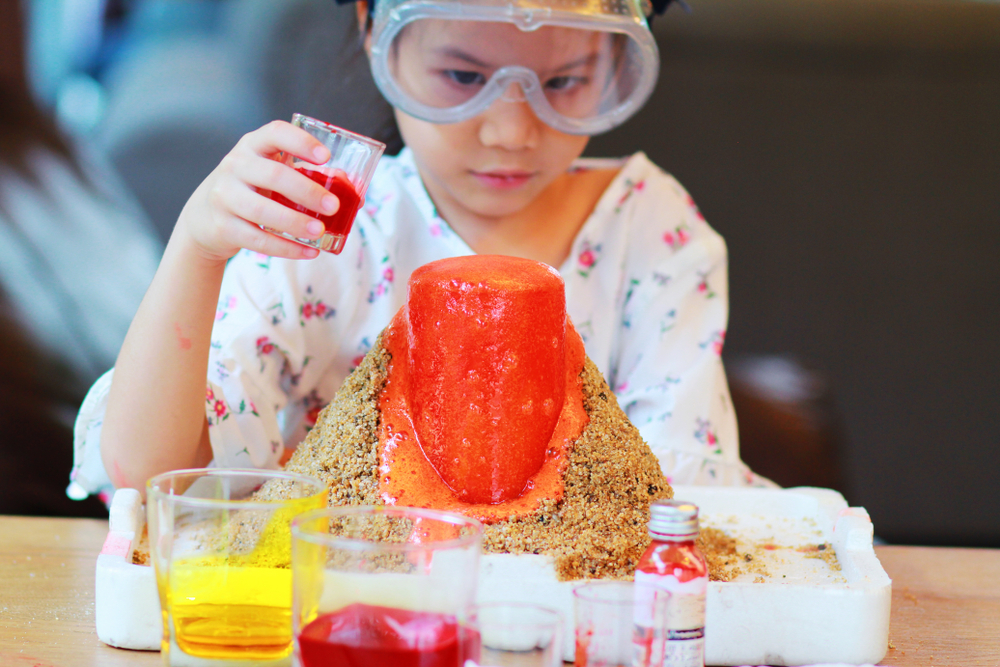Easy Reading worksheets activities for Ages 4-7
9 filtered results
-
From - To
Explore our collection of easy reading worksheets designed specifically for children aged 4-7. These engaging activities help young learners develop essential reading skills while having fun! Each worksheet focuses on improving phonics, vocabulary, comprehension, and basic sentence structure. With colorful illustrations and interactive tasks, kids will stay motivated as they sharpen their reading abilities. Perfect for parents and teachers, these worksheets can be used at home or in the classroom to provide valuable practice. Foster your child's love for reading with our carefully crafted resources, ensuring they build a strong foundation for lifelong literacy. Start their reading adventure today!
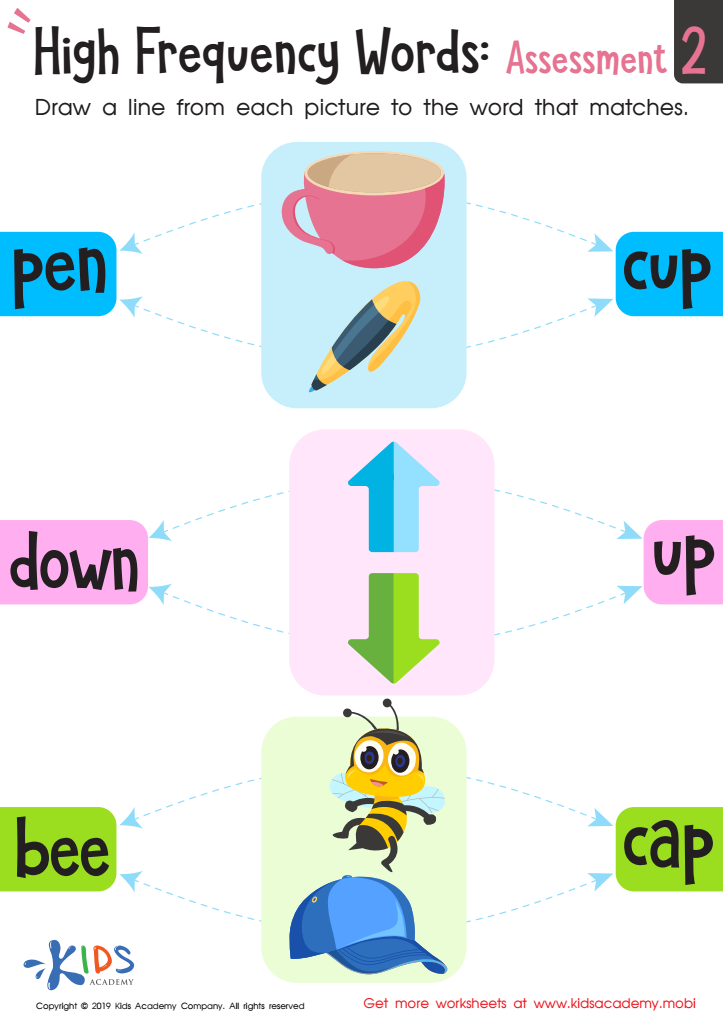

High Frequency Words: Assessment 2 Worksheet
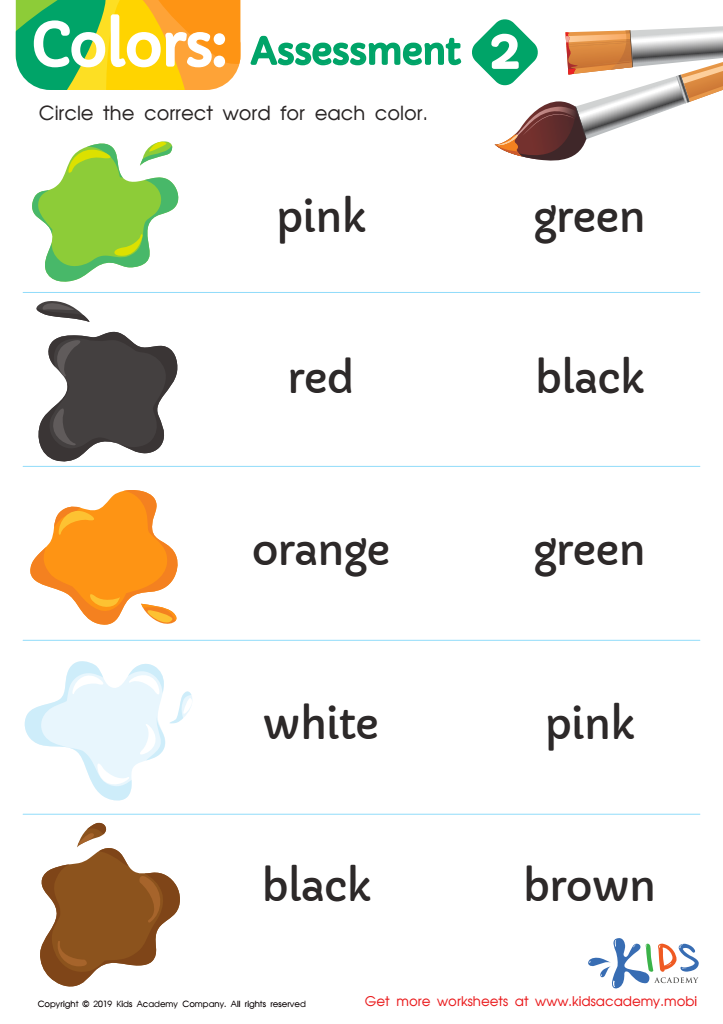

Colors: Assessment 2 Worksheet
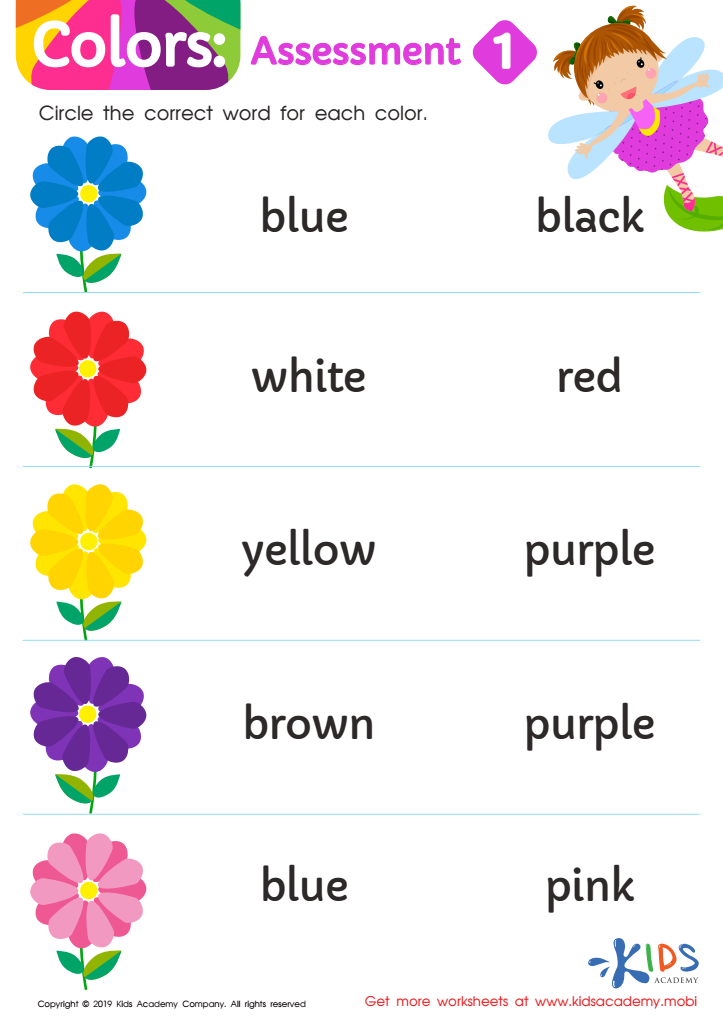

Colors: Assessment 1 Worksheet
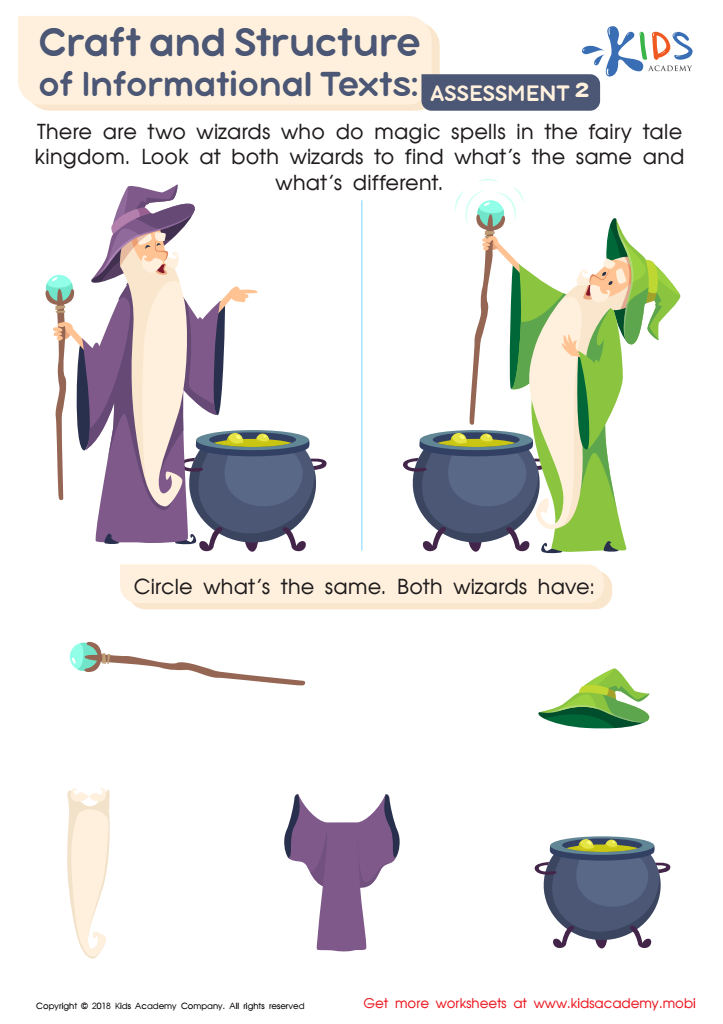

Craft and Structure of Informational Texts: Assessment 2 Worksheet
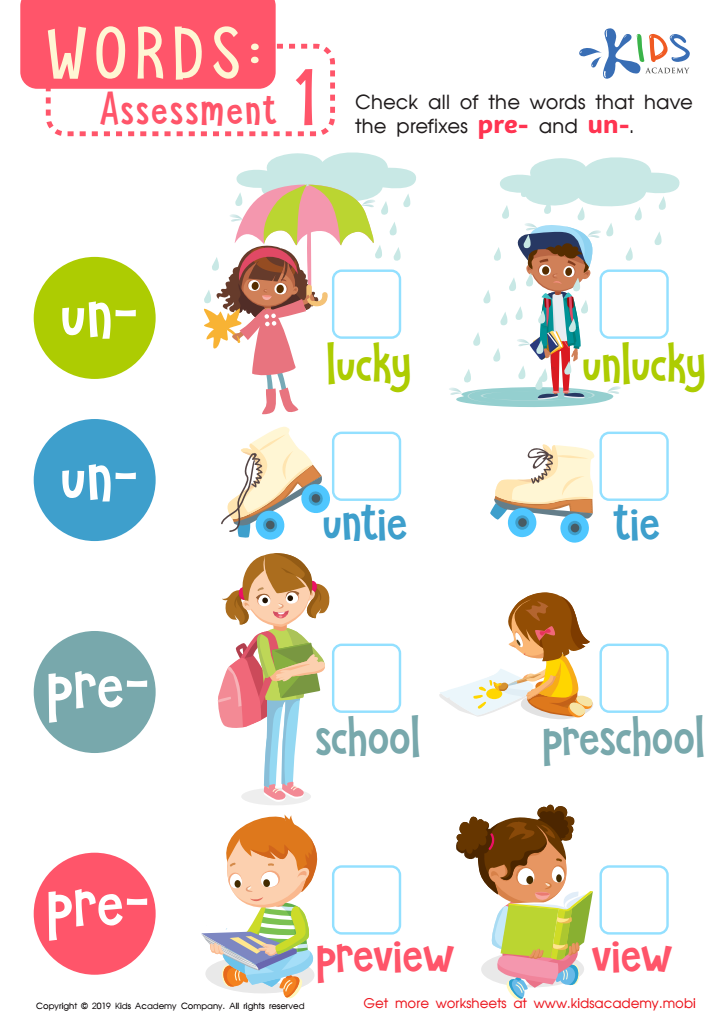

Words: Assessment 1 Worksheet
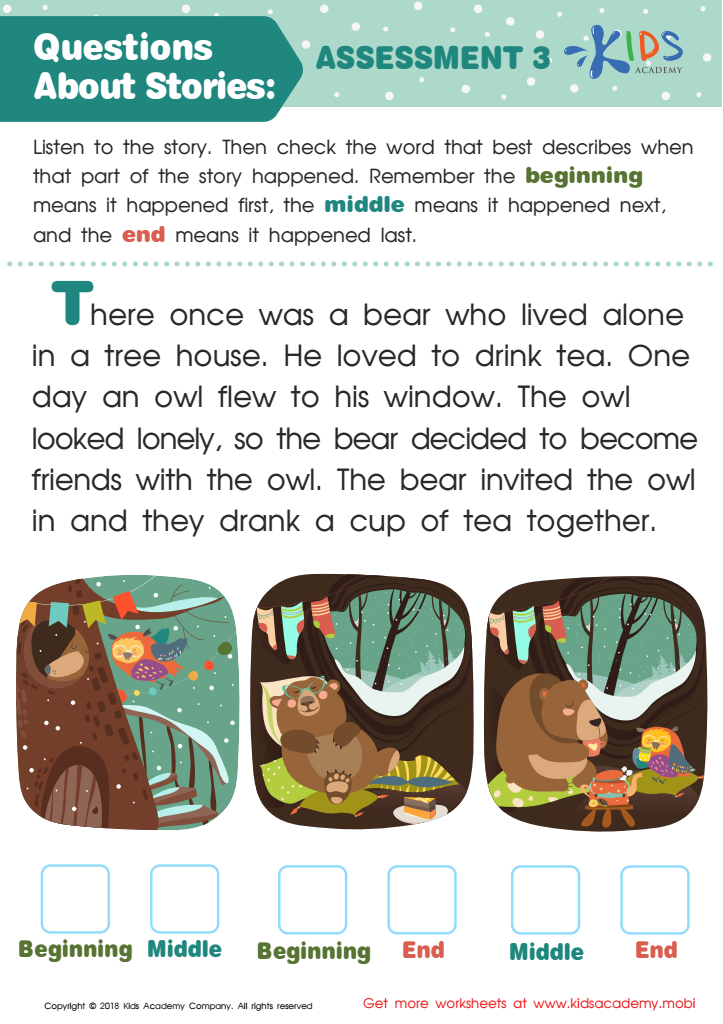

Questions About Stories: Assessment 3 Worksheet
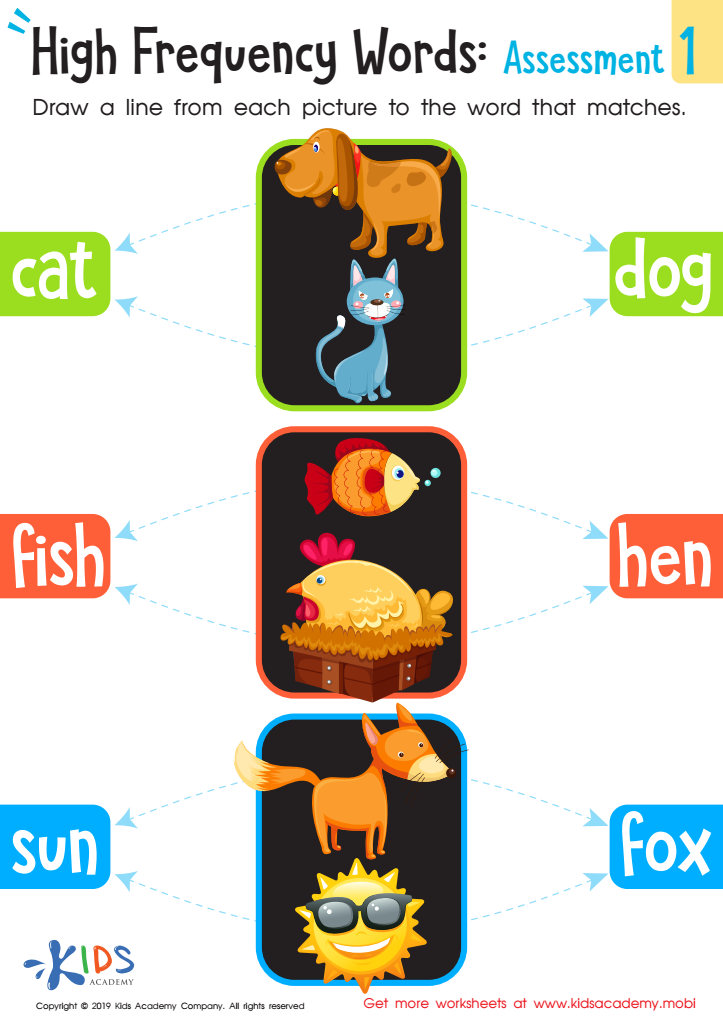

High Frequency Words: Assessment 1 Worksheet
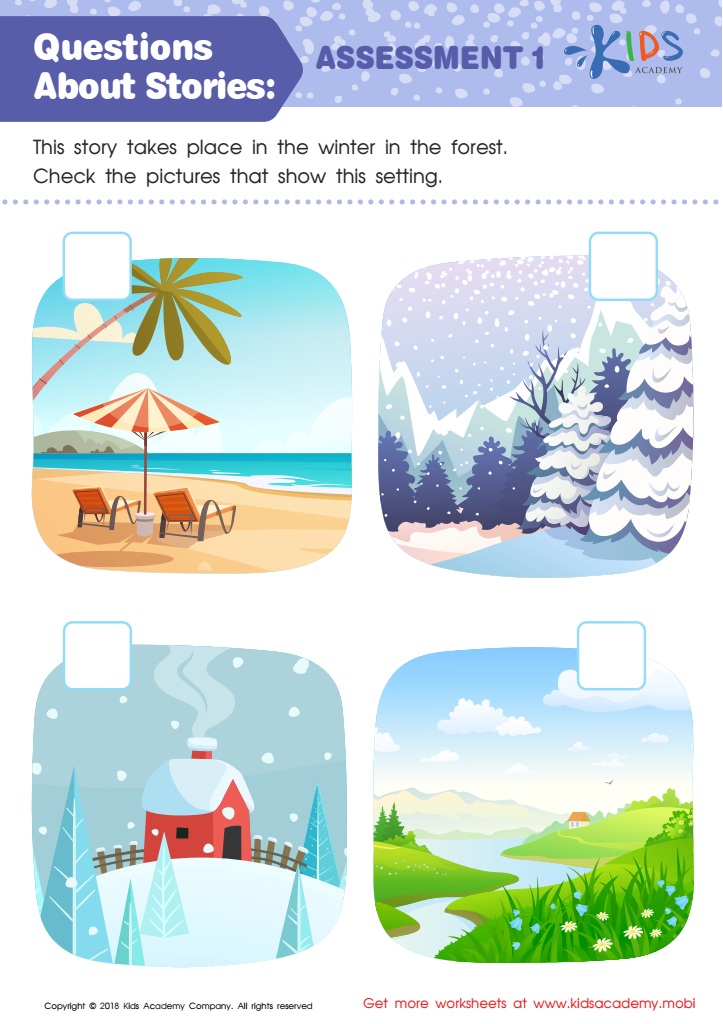

Questions About Stories: Assessment 1 Worksheet
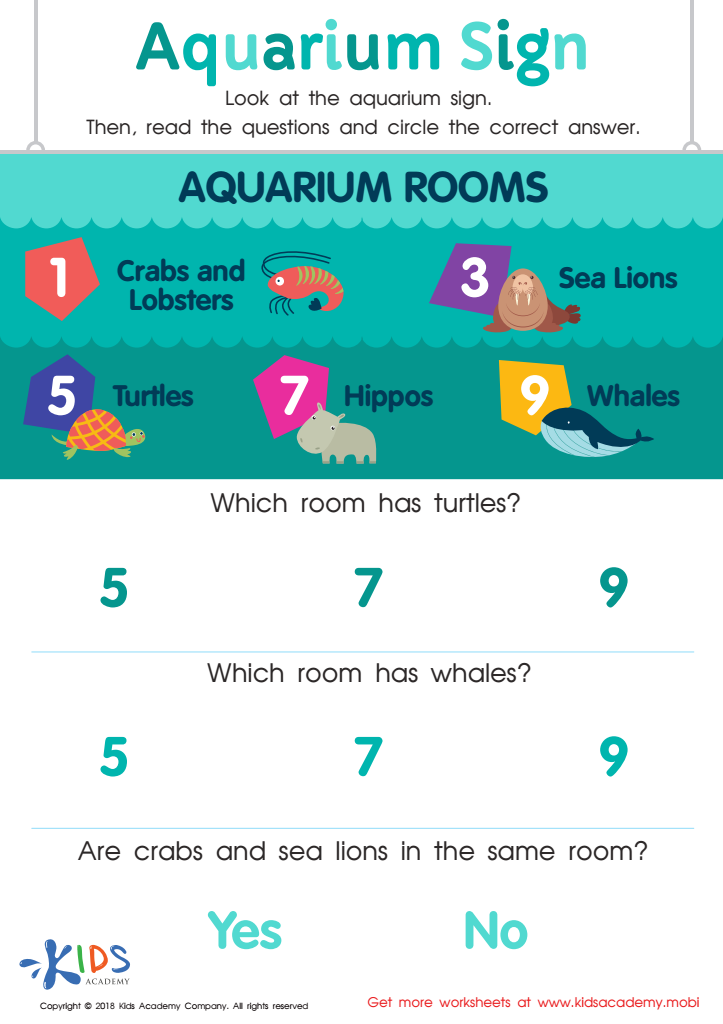

Assessment: Aquarium Sign Worksheet
Parents and teachers should prioritize easy reading activities for ages 4-7 because this foundational stage is crucial for a child’s literacy development and overall academic success. At this age, children are naturally curious about language and eager to explore stories, making it an ideal time to introduce them to reading in a fun and engaging way. Easy reading activities, such as interactive storytelling, rhyming games, and letter recognition, help nurture language skills, enhance vocabulary, and build comprehension.
Moreover, fostering a positive reading experience can instill a lifelong love for books, encouraging children to become confident readers as they grow. Reading activities also promote cognitive development, critical thinking, and social-emotional skills as children learn to connect with characters and understand diverse perspectives.
Furthermore, consistent exposure to reading rituals helps develop a routine, reinforcing the importance of literacy in daily life. Parents and teachers play a vital role in providing stimulating, age-appropriate materials and activities that cater to individual interests, which can further ignite a child’s enthusiasm for reading. Ultimately, supporting early literacy not only benefits the child in their school years but sets the stage for future learning and success.

 Assign to My Students
Assign to My Students





